The state we’re in
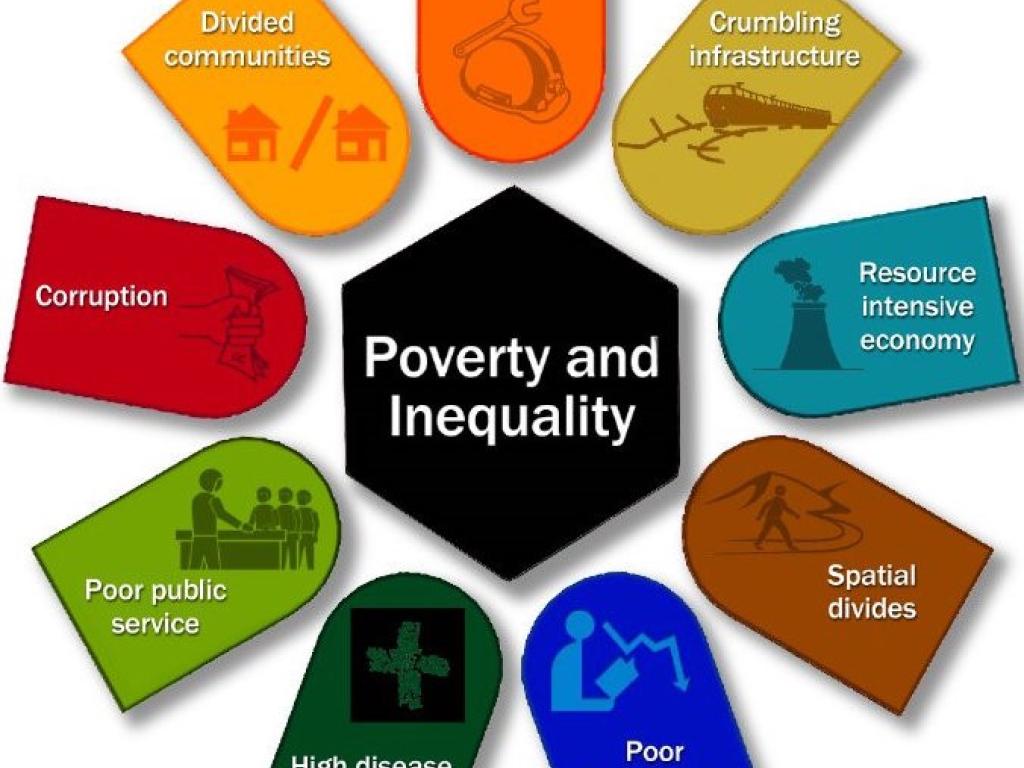
By Zachariah Glasser, ACDI Masters Student, Class of 2016
Are we seeing the big picture?
A room full of industry leaders, prominent academics, passionate civil society and inspiring graduate students…all concerned about the ‘state we’re in’.
It was incredible to see such a diverse panel connect with one another and discuss the socio-ecological and institutional trends in South Africa, and their implications for business. With various intricacies related to the discussion, I thought it would be impossible for any common links to surface. Fortunately, Tasneem Essop was in attendance, and had been tasked with answering the question: “Are we seeing the big picture”?
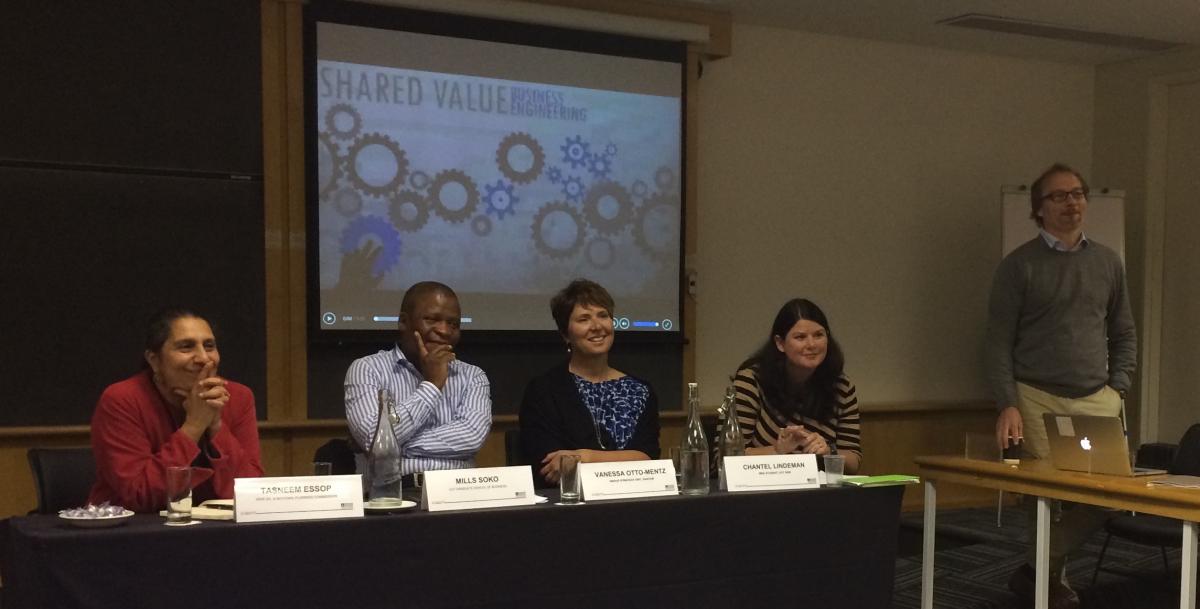
Above: The panel. (From left to right) Tasneem Essop, Mills Soko, Vanessa Otto-Mentz, and Chantel Lindeman.
We need a holistic approach.
Tasneem is the former Western Cape Provincial Minister of Environment, Planning and Economic Development, and played a pivotal role in the creation of the National Development Plan (NDP) as one of its commissioners.
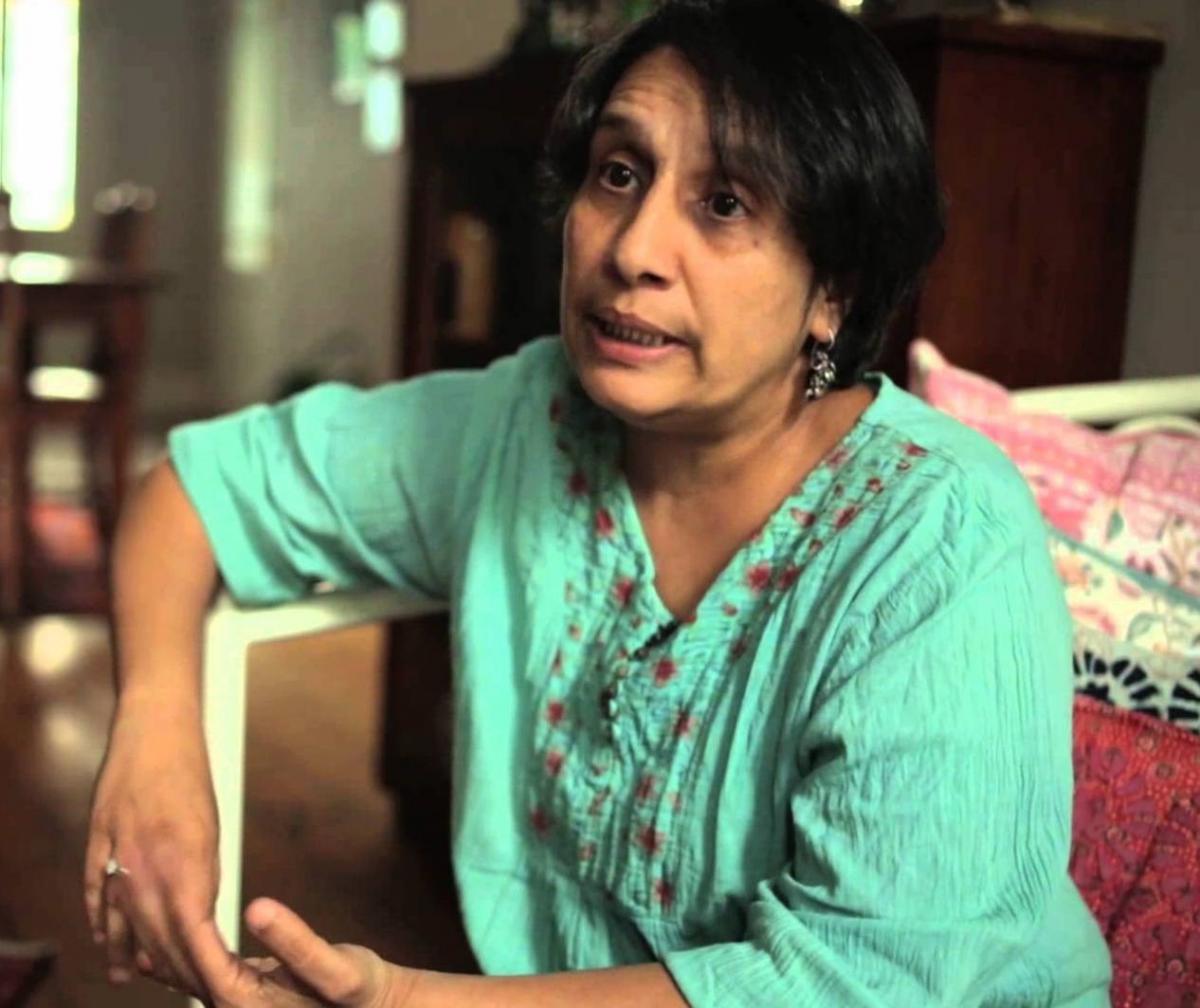
Above: Tasneem Essop - International Climate Policy Advocate at WWF-SA and member of the National Planning Commission.
Poverty and inequality were the two centrepieces of the plan, as they were and still are regarded as the two biggest problems facing South Africa. While the plan was being developed, the diagnosis for government was to place these two issues front and centre of any long-term plan it would develop. Tasneem stated that: “The context in which we are dealing with in South Africa, whether political, social or economic, poverty and inequality need to be placed front and centre in whatever we do, whether it is in business, community activism or government.”
What this boils down to is understanding that environmental sustainability and climate change are not just environmental issues, but are deeply economic, fundamentally political and have profound social impacts. It is clear that we will only find success in facing these challenges if we adopt a holistic approach, because we can’t simply ignore the bigger picture. Now how do poverty and inequality link to all of this? We know for a fact that the poor are the most vulnerable to climate change and environmental degradation - this is across the board, not just in South Africa. Problems such as food security, land ownership, access to energy and resources, all increase the vulnerability of the poor.
What should be of ultimate concern is that people who are the most vulnerable to a wide range of impacts, which are only expected to increase, are also the least responsible for climate change and environmental degradation. As a result, this is fundamentally a justice issue, where morals and ethics have a part to play.
So what about South Africa?
As Tasneem highlighted, economics is a central aspect of poverty and inequality issues. It is therefore pivotal that we address the structure of the South African economy. Given the history of colonialism, Apartheid, and our industrialization, our economy is very much driven by the minerals and energy complex. This is a legacy issue that has determined our “path dependency”, and because we haven’t addressed the structure of the economy post-Apartheid, we have fallen victim to commodity fallout and the resource curse. The curse relates to countries that have an abundance of natural resources, but tend to have less economic growth, worse development outcomes, and less democracy than countries with fewer natural resources. [[i]][[ii]]
This led to focusing on South Africa as both a contributor and victim of climate change. We are a noticeable contributor due to our dependency on coal for electricity generation. With all of our challenges (poverty, inequality, etc.) we also contribute globally to a growing climate crisis. It is obvious that we are vulnerable to it as well. Most recently we have experienced this through the drought caused by El Niño.
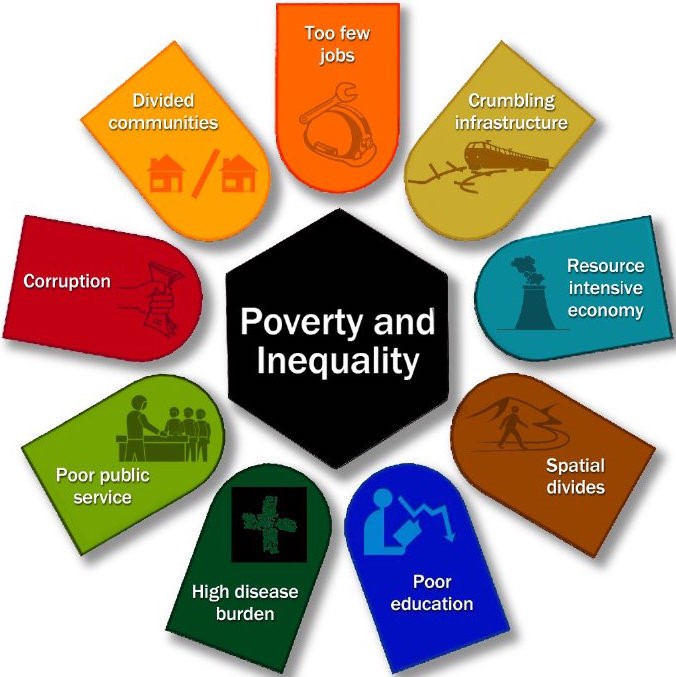
Above: Challenges South Africa faces.
With the frequency and intensity of extreme climatic events expected to increase, it is crucial that we plan for a future in which we are no longer dependent on a carbon economy and fossil fuels for energy. This also plays a critical role in addressing the issues of job creation, poverty and inequality that we face in this country today. As Tasneem highlighted in the discussion: South Africa signing the global agreement in Paris, [which] “means making global commitments to bringing down our emissions – so there’s no choice about this.” The country has set a carbon budget for itself.
In the view of environmental activists, this budget too high. On a global view and considering equity, South Africa might not being doing its fair share. However, there would need to be a completely separate panel discussion for that debate.
Focusing on the importance of moving away from coal, the NDP recognizes this. The commissioners took all of this into consideration and started off with thinking that “we have to already plan for that transition and not be caught off guard.” If we don’t plan properly, we are going to end up with an immense amount of stranded assets in the country that we are investing in now in terms of infrastructure, and we are already “locking those in”. It is essential that we start addressing the energy choices that we are making now - such as nuclear and natural gas.
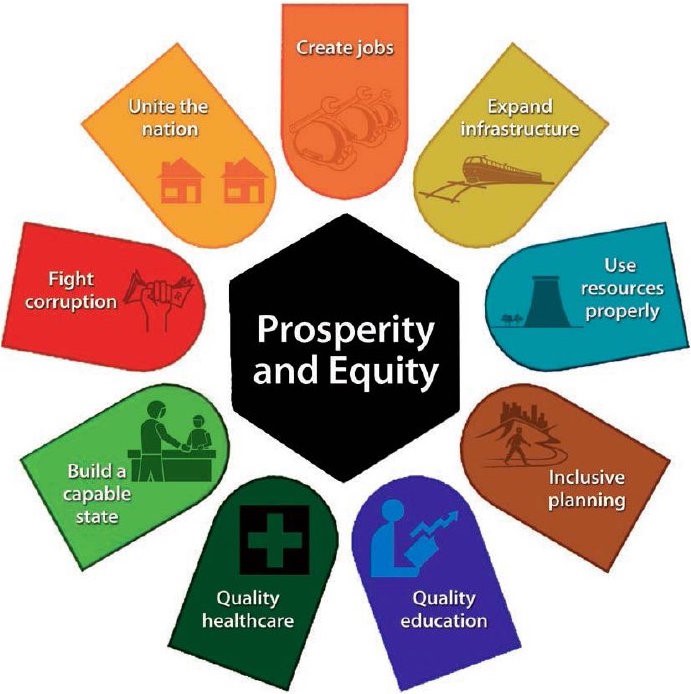
Above: The aims of the National Development Plan (NDP).
Final remarks…
“Energy and the transition away from fossil fuels is an issue that is going to cut across everything, and it has to be addressed in a holistic way, and it needs the active engagement of everybody.”
Business, labour, civil society, and government need to get into conversation with each other about these hard topics and serious issues now, so that we can start figuring out the solutions. While there are many things that could end up being rather simple, the way in which we will have to plan for this will most certainly be very complex, not just in terms of the solutions we find but also the way we manage massive societal and economic transformations.
“There is a tendency for us to try and make things simpler. However, things tend to hit us from a blind spot when we only focus on a select few.” - Prof Ralph Hamann (chair for the panel discussion)
This led Tasneem to her final concluding thought, and one that truly captured the severity of our situation. “In fact, it’s going to have to be, I’m going to use that “R” word, a revolution.” It will have to be one, because the time frames are very limited in which we need to make these huge shifts in our society and economy.
[i] Bulte, E. H., Damania, R., & Deacon, R. T. (2005). Resource intensity, institutions, and development. World development, 33(7), 1029-1044.
[ii] Ross, M. L. (1999). The political economy of the resource curse. World politics, 51(02), 297-322.